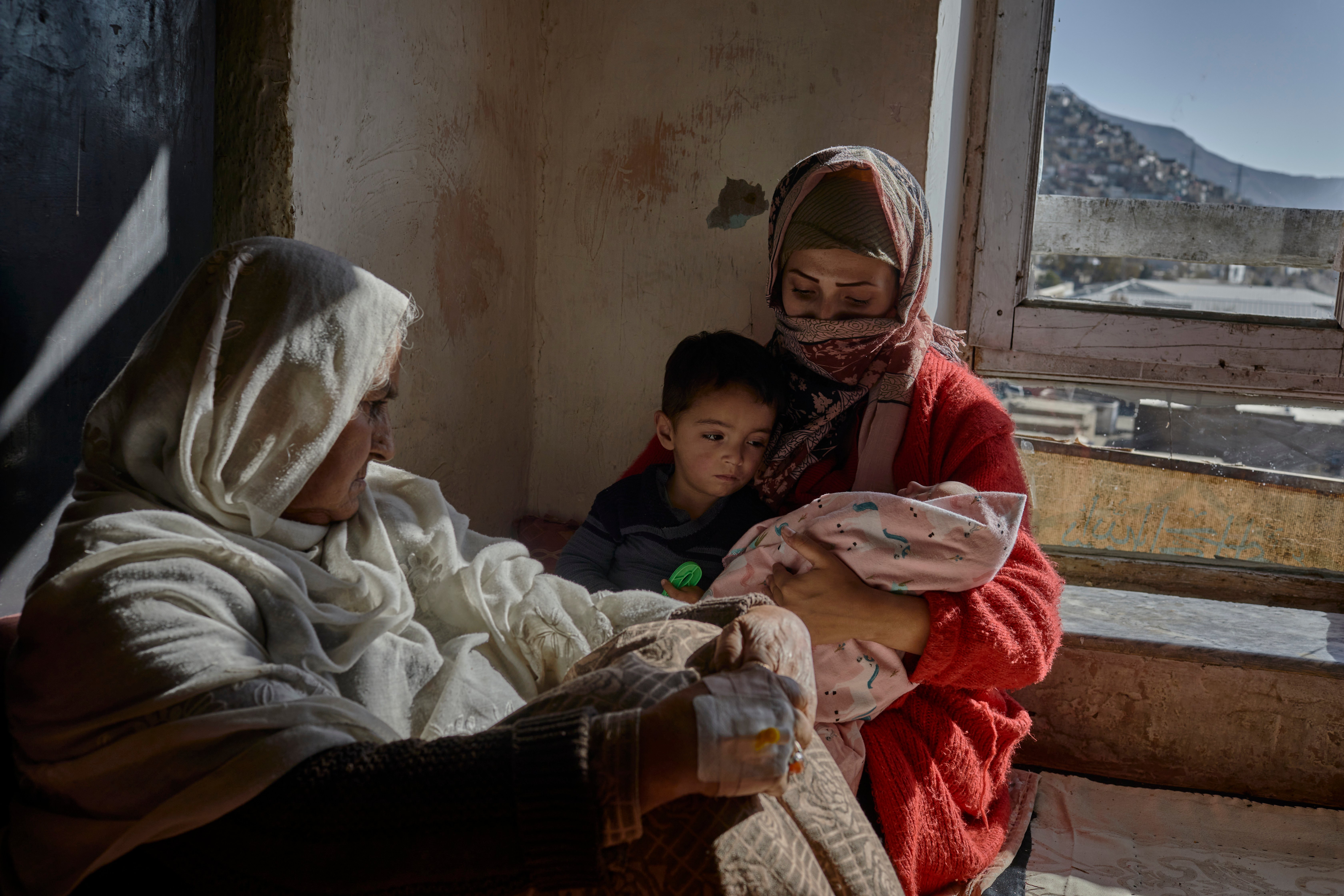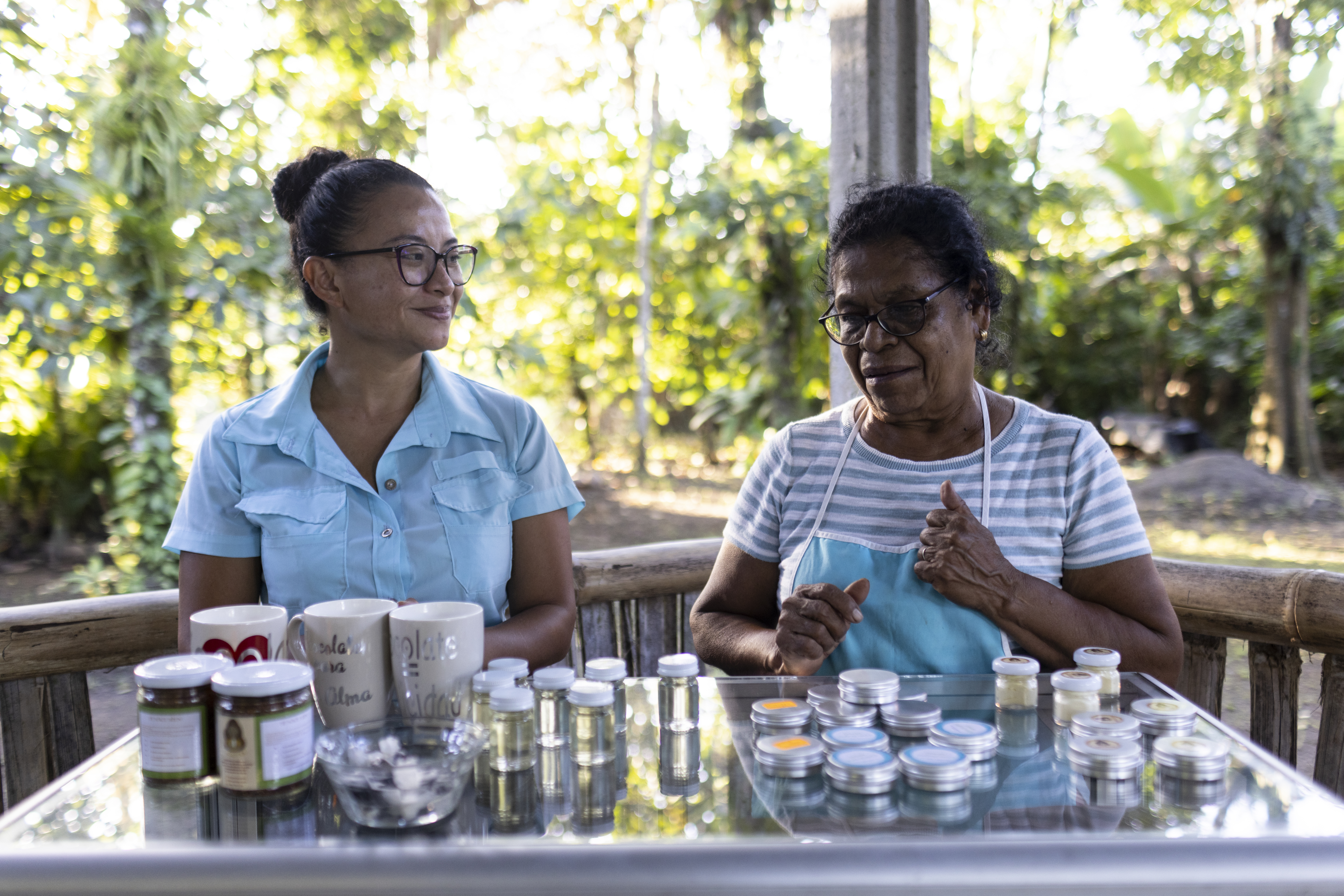Far from family, young female refugees from Myanmar find friendship
Far from family, young female refugees from Myanmar find friendship

KUALA LUMPUR, March 7 (UNHCR) - Two teenagers sip iced tea at a roadside stall in Kuala Lumpur, their conversation peppered with laughter. But despite their happy demeanour, the two young women have suffered a lot and face an uncertain future far away from their families in Myanmar.
Sarah and Rachel fled Myanmar two year ago at the age of 15 to escape a very real threat of sexual and physical abuse and they have been struggling to find their footing in Malaysia ever since. Their story is not uncommon.
"In the refugee world, we often encounter the unfortunate situation where refugee children end up on their own in the host country because their parents were unable to leave for a variety of reasons or because they got separated from them during flight," said Volker Turk, UNHCR representative in Malaysia.
In most cases, a relative or a friend takes care of them, but sometimes they are completely on their own. "For these children, in particular girls, their age and gender make them especially vulnerable to exploitation and abuse, and we must do everything to prevent that from happening," Turk added.
UNHCR has registered some 43,000 refugees and asylum seekers in Malaysia. About 4,000 are females aged under 18, and half of them are in the country on their own, while some 27,000 of the total come from Myanmar.
With International Women's Day on Thursday, UNHCR is putting a spotlight on uprooted females and reaffirming its commitment to prioritising women's and girl's protection risks and support gender equality. This year's theme is, "Ending Impunity for Violence against Women and Girls."
Sarah and Rachel met last year while taking part in a UNHCR-organised hairdressing course that they hope will increase their chances of finding a decent job. Their similar experiences in Myanmar and Malaysia and their shared sense of loneliness have brought the girls very close together.
Both were happily studying at school when their lives were overturned by violence, or the threat of violence and sexual abuse; both had a traumatic time leaving the country; and both have experienced hard times in Malaysia.
"People often say I was very brave because I was so young to be travelling without family, but I had no choice," said Sarah. "Unknown men had come to my house and ordered me to work for them. But I was sick and I said I could not do it. They beat me up. The villagers were afraid to help and they told my father that I should leave the village because the men will come back looking for me."
In Rachel's case, her mother arranged for the girl and her sister to leave after armed men raped her sibling and threatened to come back. The two sisters were separated during their trip. "I was physically and emotionally sick for a long time after I arrived because I had never been separated from my family before," Rachel recalled.
To pay off the outstanding amount on her family's debt, Sarah said she was forced to work for the agent who had arranged for her to be smuggled into Malaysia. "I cleaned, washed and did other household chores, but there were many male tenants living in the house and I felt uncomfortable," said Sarah, who alleged that she was physically and verbally abused.
She moved out last year after finding work at a Japanese restaurant, but quit this job when the manager asked her to entertain clients in a new karaoke room. Rachel, meanwhile, works in a restaurant for a minimal wage. The hours are long, but she is glad to have a job.
Despite the hardships, both girls believe things have taken a turn for the better and - despite low moments - they remain optimistic about the future. They have also found a surrogate family - brought together at the UNHCR hairdressing course, Sarah and Rachel and other asylum seekers from Myanmar share a flat run by a local community group.
"I think about going home, but I can't right now," said Rachel. "I want to be educated and become a nurse. In the small village I come from, I have seen many poor people die because they didn't have access to medication, doctors or nurses. I want to take care of these kinds of people whether they are in Myanmar or anywhere else in the world."
For the time being, she hopes to use the skills picked up during the two month UNHCR course to make enough money to live on and, one day, pay for a college course. The course was aimed at giving new marketable skills to young refugee women from countries like Myanmar and Indonesia.
"I was really interested in the programme even though I had never considered becoming a hairdresser," said Rachel. "When we began, I didn't know anyone in the class but by the end we were all friends."
By Yante Ismail in Kuala Lumpur, Malaysia









